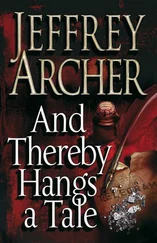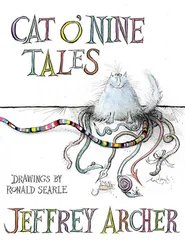Mario Farinelli handed Antonio a glass, and asked, “How many people have you arrested today?”
“It’s been a little disappointing,” said Antonio. “No one has admitted to killing Lombardi today,” he added as Francesca entered the room.
Antonio immediately realized it was the first time he’d seen her not wearing a long white coat. She was dressed in a red silk blouse, a black skirt, and a pair of high-heeled shoes that certainly hadn’t been bought in Cortoglia. He tried not to stare at her. What else was different? Of course, she’d let her hair down. He hadn’t thought it possible that she could be even more beautiful.
“As you’re a highly trained detective,” she said, “I assume you already know my name is Francesca, but I don’t know if you’re Antonio or Tony?”
“My mother calls me Antonio, but my friends call me Tony.”
“I know you work in Naples,” said Elena Farinelli, “but do your family also come from there?”
“Yes,” said Antonio, “my parents are both schoolteachers, and I have two brothers. One’s a printer and the other a lawyer.”
“Did you always want to be a policeman?” asked Francesca, as her father handed her a glass of wine.
“Yes I did. But then in Naples you have to work for one side of the law or the other.”
Everyone dutifully laughed, and Antonio was reminded how stilted conversations could be when you didn’t know each other, but wanted to.
Francesca’s mother turned out to be a traditional Italian housewife, whose cooking was so superb she could have opened her own restaurant. During dinner, her husband kept them all entertained with stories he’d overheard in the pharmacy. The biggest gossip shop in town, he admitted, and everyone had an opinion on who killed Lombardi.
“I have a feeling that by the time I get back to Naples, I’ll be the only person who hasn’t confessed to murdering the mayor.”
The Farinellis made it easy for Antonio to relax and feel at home, and he couldn’t remember how many bottles of wine Mario had opened during the evening. But he was glad when the time came for him to leave that he could walk back to the mayor’s house. If he’d driven, he would have had to arrest himself.
“See you tomorrow,” said Francesca, smiling, as she accompanied him to the front door. He looked puzzled. “By then, it will surely be time for you to get another bar of soap. By the way, most of our customers buy them in boxes of three, even six.”
“Can I take you to dinner?” he asked.
“That would be nice.”
The day started badly for Antonio, when the postman felt it was his turn to confess to murdering the mayor.
“And how did you kill him, signor?” he asked, not even picking up his pen.
“I drowned him,” said the postman.
“In the sea?” suggested Antonio, raising an eyebrow.
“No, in his bath. I took him by surprise.”
“You must have done,” said Antonio. “But before I write down the details of your confession, may I ask, how tall are you?”
“I am five foot three and a half.”
“And you weigh?”
“Around one hundred forty, one hundred fifty pounds.”
“And you want me to believe you drowned a man of six foot four who weighed over three hundred pounds, and who some suggested never took a bath. Tell me, signor, was he asleep at the time?”
“No,” said the postman, “but he was drunk.”
“Ah, that would explain it,” said Antonio. “But, frankly, if he’d been dead before you attempted to drown him, it would still have been a close-run thing.” The postman tried to look offended. “Anyway, there’s something else you’ve overlooked.”
“What’s that?”
“Lombardi wasn’t drowned. But good try, signor, and more important, have I got any post this morning?”
“Yes, one from your mother, one from the chief of police in Naples, and another from your brother.”
“The printer or the lawyer?” Antonio asked as the postman placed the three letters on his desk.
“The lawyer.”
“Are there any secrets in this town?”
“Just one,” said the postman.
Dinner with Francesca at her favorite restaurant was about as public as an execution. If he’d even thought about holding her hand, it would have been front-page news in the Cortoglia Gazzetta .
“Don’t you ever get bored living in a small town?” he asked her after a waiter had whisked away their plates.
“No,” she replied. “I can read the same newspapers and the same books as you do, watch the same television programs, eat the same food, and drink the same wine. And if I want to buy some new clothes, visit an art gallery, or go to the opera, I can always spend the day in Naples.”
“But the bustle, the excitement, the—”
“The traffic, the pollution, and the graffiti, not to mention the manners of some of your fellow Neapolitans.”
“I want to hold your hand,” he said, while the Beatles record played in the background.
Francesca looked around the tables and smiled. “Then we’d better skip dessert and go for a walk.”
“I’ll settle the bill,” said Antonio, taking out his wallet.
“There won’t be a bill,” said Francesca. “Gian Lucio is telling everyone that although he confessed to killing the mayor, you refused to arrest him.”
“Because he wasn’t guilty,” protested Antonio. When they stood up to leave, Gian Lucio bustled across to say he hoped he would see them both again before too long.
As they walked together through a maze of cobbled streets, Francesca chatted as if they were old friends, another new experience for Antonio. And when they finally ended up outside her front door, they kissed for the first time.
“See you tomorrow,” Francesca said as she put her key in the lock. “Will it be razor blades or shaving cream I wonder?”
She had closed the door before he could reply.
The Naples chief of police called Antonio at the end of the month, and asked if he was making any progress.
“Can’t pretend I am, chief,” admitted Antonio. “To date,” he said, opening a thick file, “thirty-three people have confessed to killing Lombardi, and what makes it worse, I think they all know who did.”
“Someone will crack,” said the chief. “They always do.”
“This isn’t Naples, chief,” he heard himself saying.
“So who’s the latest one?”
“Not one, eleven. The local football team are claiming they pushed Lombardi over a cliff.”
“And what makes you so sure they didn’t?”
“I interviewed all eleven of them separately, and they couldn’t even agree on which part of the cliff they pushed him over, or how they got him back to his house and tucked him up in bed. And in any case, I can tell you they’re just not murderers.”
“How can you be so sure, Antonio?”
“They haven’t won a match in the past fifteen years. In any case, that wasn’t how Lombardi was killed.”
“He’s clearly not going to be missed by anyone,” said the chief, “because I’ve just received a report from my Head of Organized Crime, and it seems the Camorra expelled him because they thought he was too violent. So if you’re no nearer to solving the crime by the end of next month, I want you back in Naples where real murderers are still roaming the streets.”
Everyone took the day off, Antonio included, to celebrate the installation of the new mayor. Lorenzo Pellegrino was elected unopposed, which didn’t come as a surprise to anyone, and the council of six remained in place. Dancing and drinking in the town square went on until the early hours, right outside Antonio’s bedroom window, and that wasn’t the only reason he couldn’t get to sleep.
The next morning he called his mother to tell her he’d met the woman he wanted to marry, and she would be captivated, and not just by her beauty.
Читать дальше
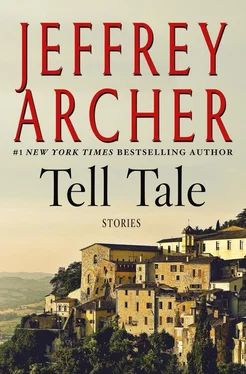



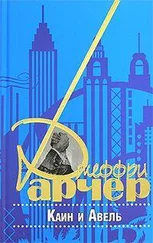
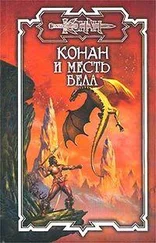
![Джеффри Арчер - The Short, the Long and the Tall [С иллюстрациями]](/books/388600/dzheffri-archer-the-short-the-long-and-the-tall-s-thumb.webp)


